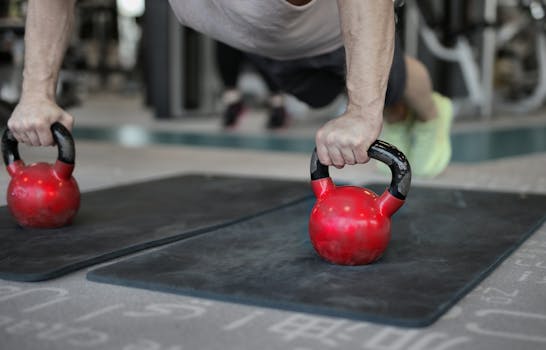Embracing a Vibrant Lifestyle: Tips for a Balanced Life
Takeaways:
- Understand the importance of a balanced lifestyle for overall well-being.
- Learn practical tips on nutrition, exercise, and mental health.
- Explore ways to integrate mindfulness and personal development into your daily routine.
In today’s fast-paced world, maintaining a vibrant lifestyle can often feel like a daunting task. However, by incorporating simple yet effective strategies into your daily routine, you can achieve a balanced life that promotes wellness and happiness. This article will guide you through essential lifestyle tips, covering various aspects such as nutrition, exercise, mental health, and personal development.
The Importance of a Balanced Lifestyle

Physical Health
Physical health is the foundation of a vibrant lifestyle. It involves maintaining a healthy body through proper nutrition and regular exercise. A well-balanced diet rich in fruits, vegetables, whole grains, and lean proteins fuels your body and helps prevent chronic diseases.
Mental Wellness
Mental wellness is equally important. It involves managing stress, practicing self-care, and nurturing your emotional health. Techniques such as mindfulness, meditation, and therapy can enhance your mental well-being.
Social Connections
Building strong social connections contributes significantly to your quality of life. Engaging with friends and family, participating in community activities, and fostering meaningful relationships can enhance your happiness and overall satisfaction.
Nutrition: Fueling Your Body

Understanding Nutrition Basics
To maintain a balanced diet, it’s essential to understand the fundamentals of nutrition. This includes recognizing macronutrients (carbohydrates, proteins, and fats) and micronutrients (vitamins and minerals) and their roles in our bodies.
Creating a Balanced Meal Plan
Creating a balanced meal plan can help streamline your nutrition. Focus on incorporating a variety of food groups and colors into your meals to ensure you’re receiving a wide range of nutrients.
Hydration and Its Impact
Staying hydrated is crucial for optimal health. Water supports digestion, skin health, and cognitive function. Aim to drink at least 8 glasses of water daily and adjust according to your activity level and climate.
Exercise: Moving Towards Wellness

Finding the Right Exercise for You
Finding an exercise routine that you enjoy is key to sustainability. Whether it’s running, cycling, yoga, or dancing, engaging in activities you love makes it easier to stay active.
Incorporating Activity into Daily Life
Incorporating physical activity into your daily routine can be as simple as taking the stairs, going for a walk during lunch, or participating in active hobbies. Every bit counts!
The Mental Benefits of Exercise
Exercise not only benefits your physical health but also enhances your mental well-being. It releases endorphins, which can improve mood and reduce feelings of anxiety and depression.
Mindfulness and Mental Health

Understanding Mindfulness
Mindfulness involves paying attention to your thoughts, feelings, and surroundings without judgment. It can be practiced through meditation, deep breathing exercises, or simply being present in the moment.
Benefits of Mindfulness
Practicing mindfulness can reduce stress, enhance focus, and improve emotional resilience. It allows you to respond to challenges more effectively and enjoy life more fully.
Incorporating Mindfulness into Daily Life
Incorporating mindfulness into your daily routine doesn’t have to be complicated. Simple practices like mindful eating, taking deep breaths, or engaging in gratitude exercises can make a significant difference.
Personal Development: Growing and Evolving

Setting Goals for Success
Setting achievable goals is crucial for personal development. Use the SMART criteria (Specific, Measurable, Achievable, Relevant, Time-bound) to create clear objectives that motivate you.
Embracing Lifelong Learning
Lifelong learning is vital for personal growth. Embrace opportunities to learn new skills, whether through online courses, reading, or workshops. This keeps your mind sharp and opens new avenues for creativity.
Building Resilience
Resilience is the ability to bounce back from setbacks. Cultivating resilience involves developing a positive mindset, practicing self-compassion, and learning effective coping strategies.
Conclusion

FAQs
1. What are the key components of a balanced lifestyle?

2. How can I improve my nutrition?
Improving your nutrition involves understanding the basics of healthy eating, planning balanced meals, and staying hydrated.
3. What types of exercise are best for beginners?
Start with activities you enjoy, such as walking, cycling, or swimming, and gradually incorporate strength training and flexibility exercises.
4. How can mindfulness help me?
Mindfulness can reduce stress, improve focus, and enhance emotional well-being by encouraging present-moment awareness.
5. What are some personal development goals I can set?
Consider goals related to career advancement, skill acquisition, health improvements, or relationship building.


